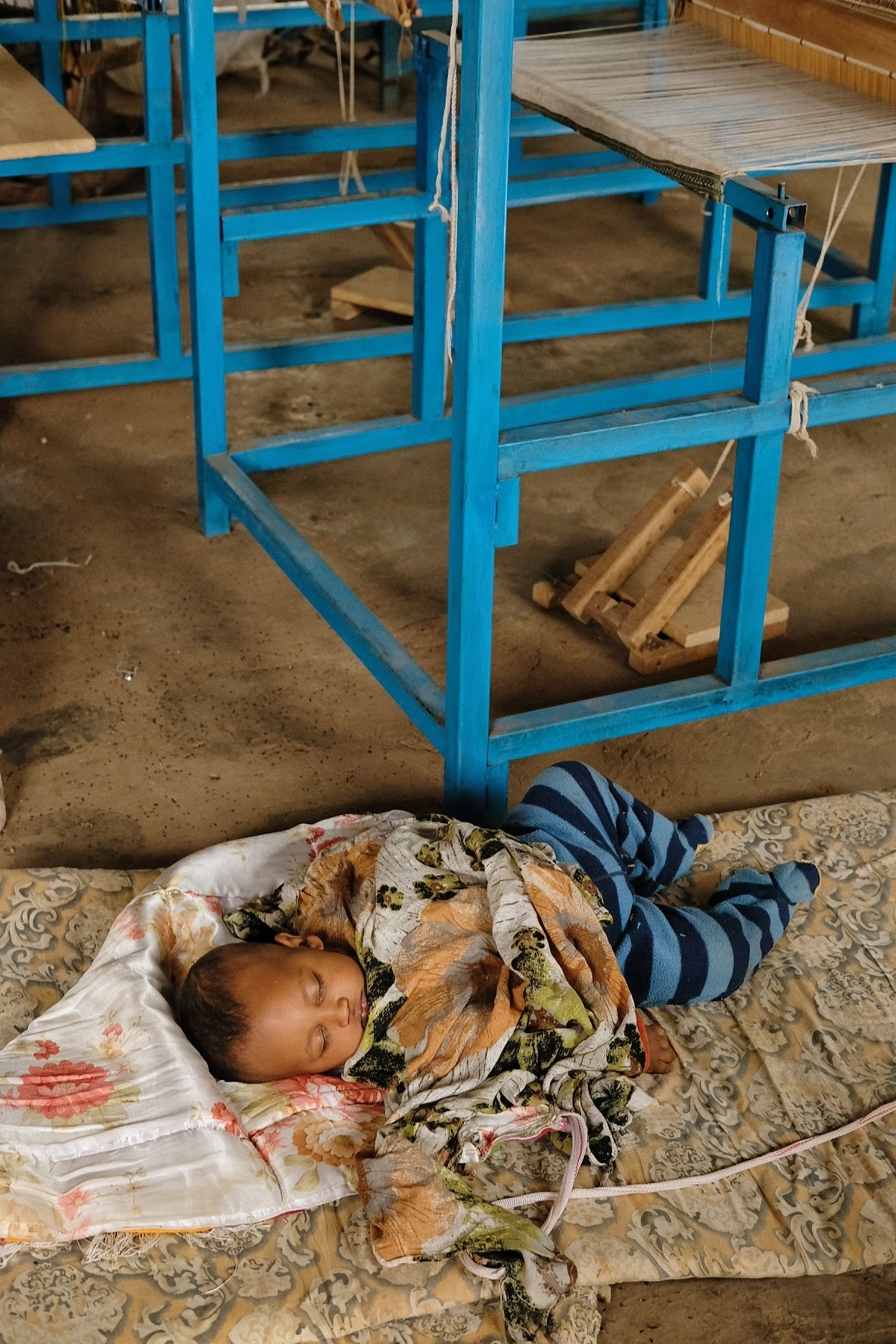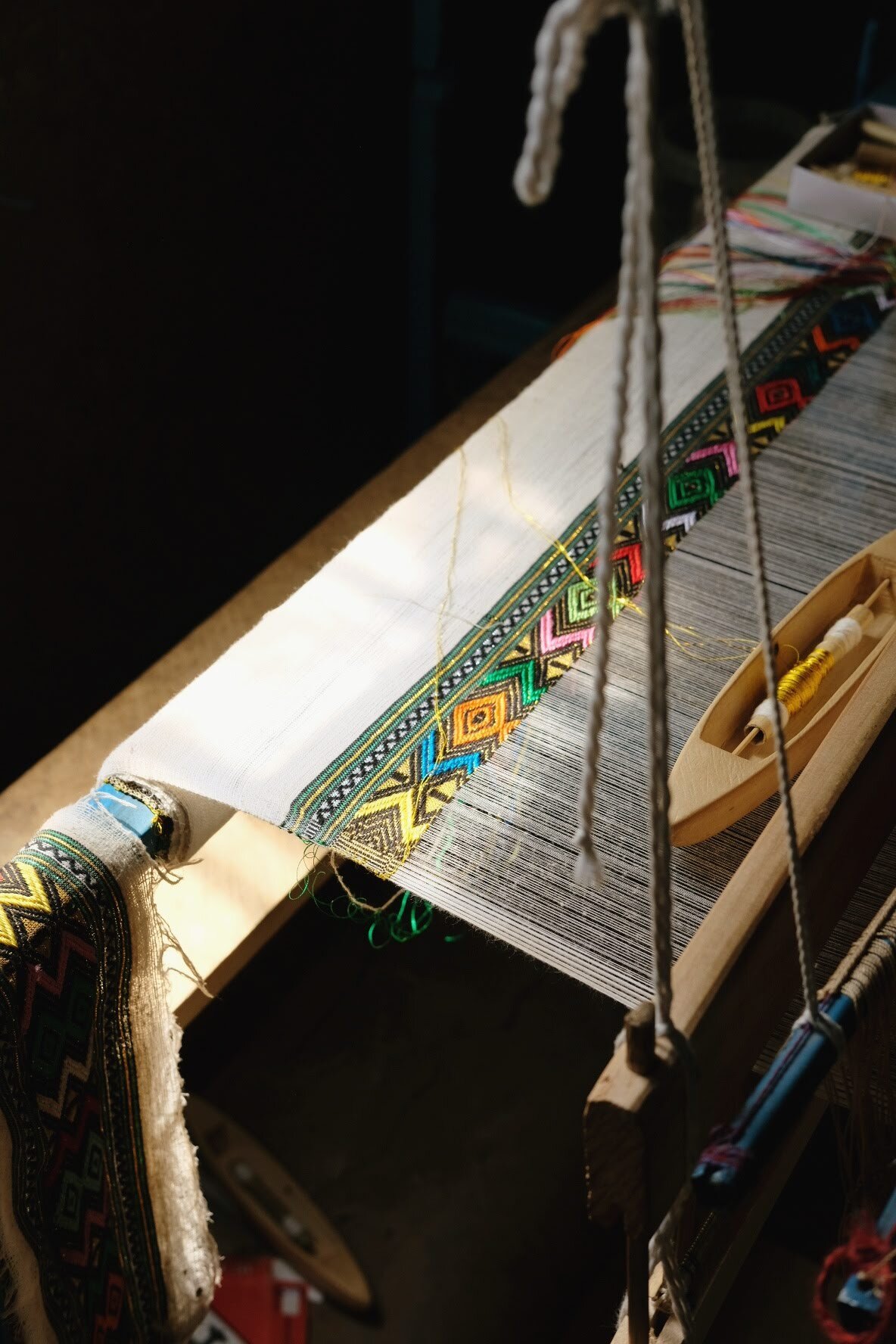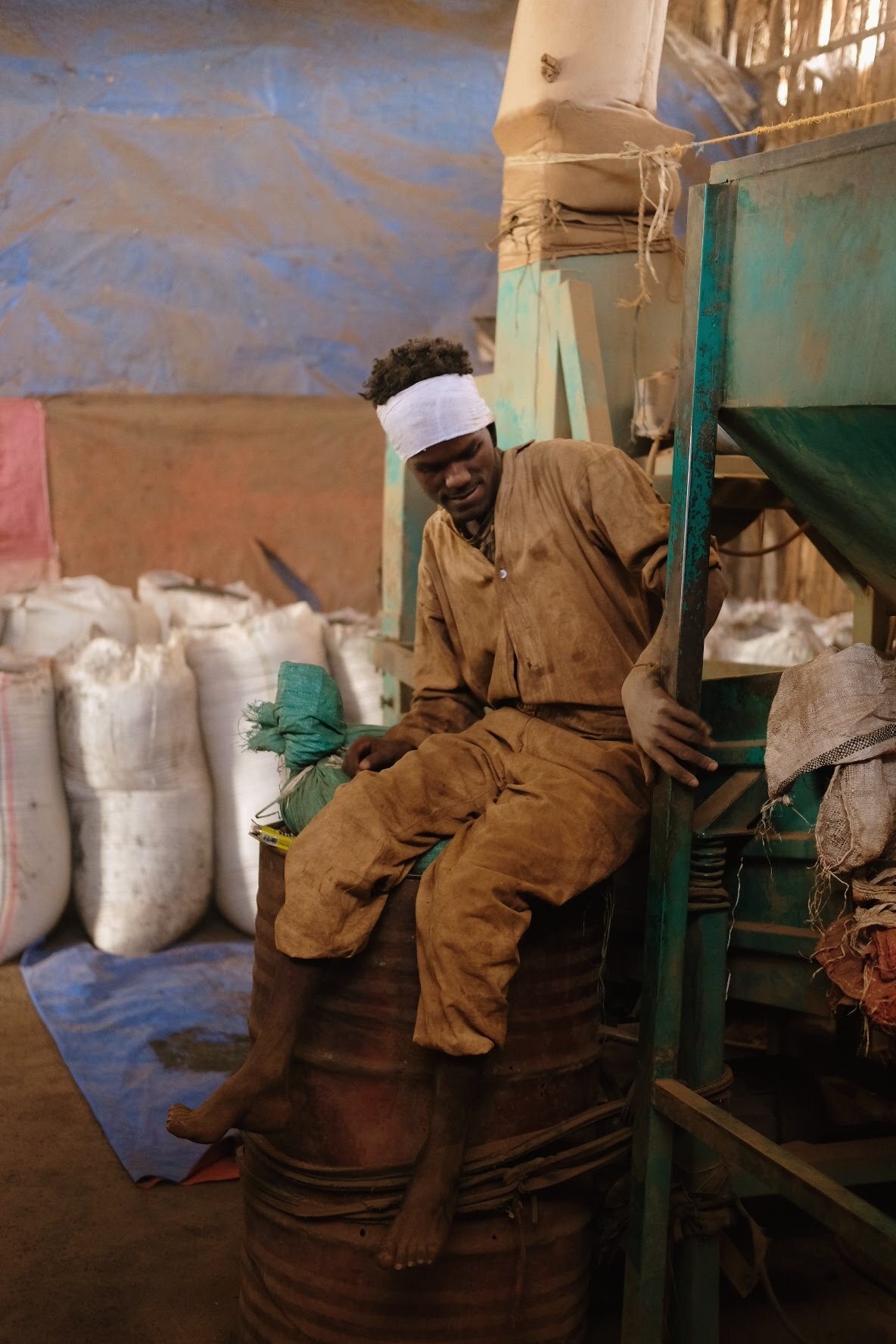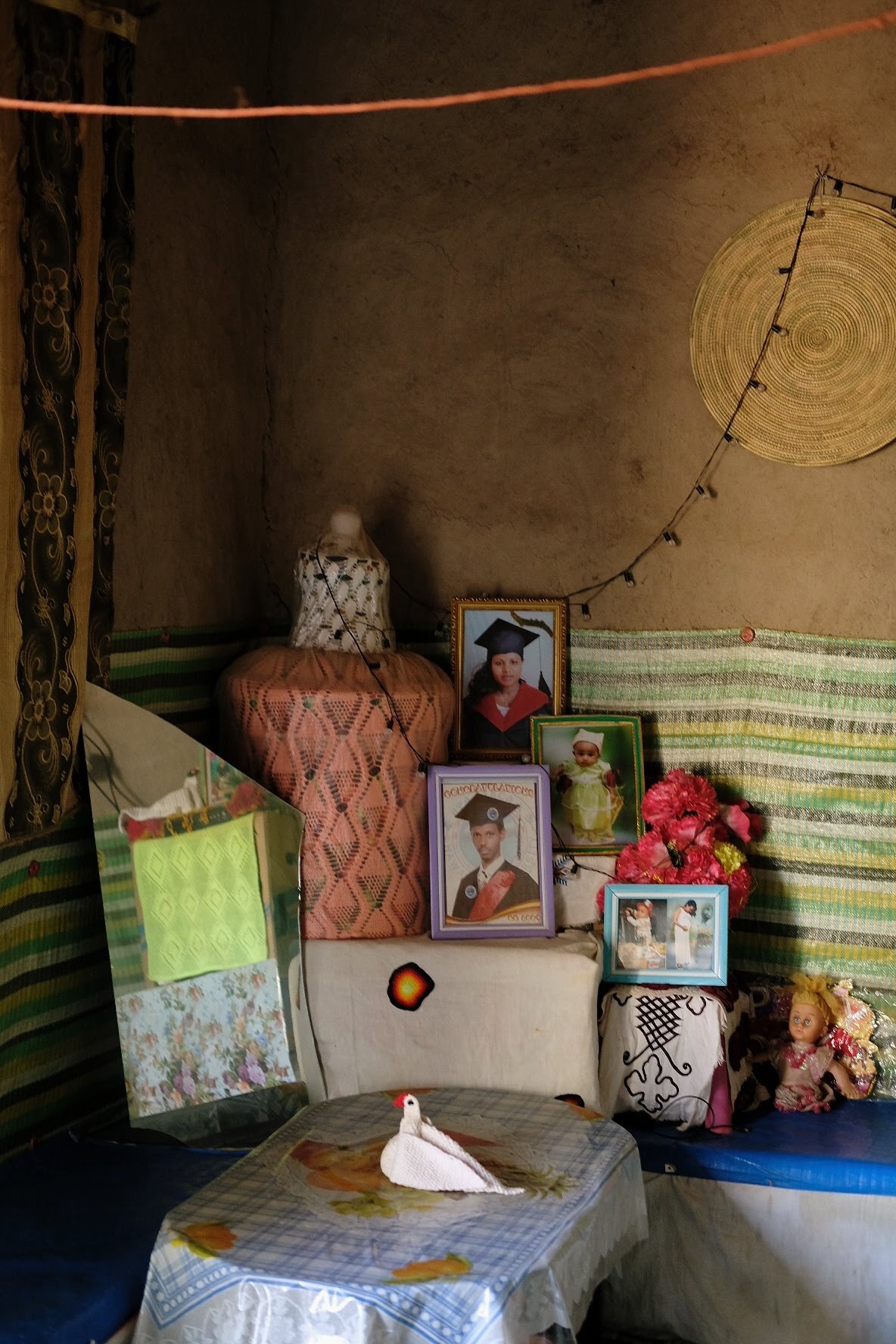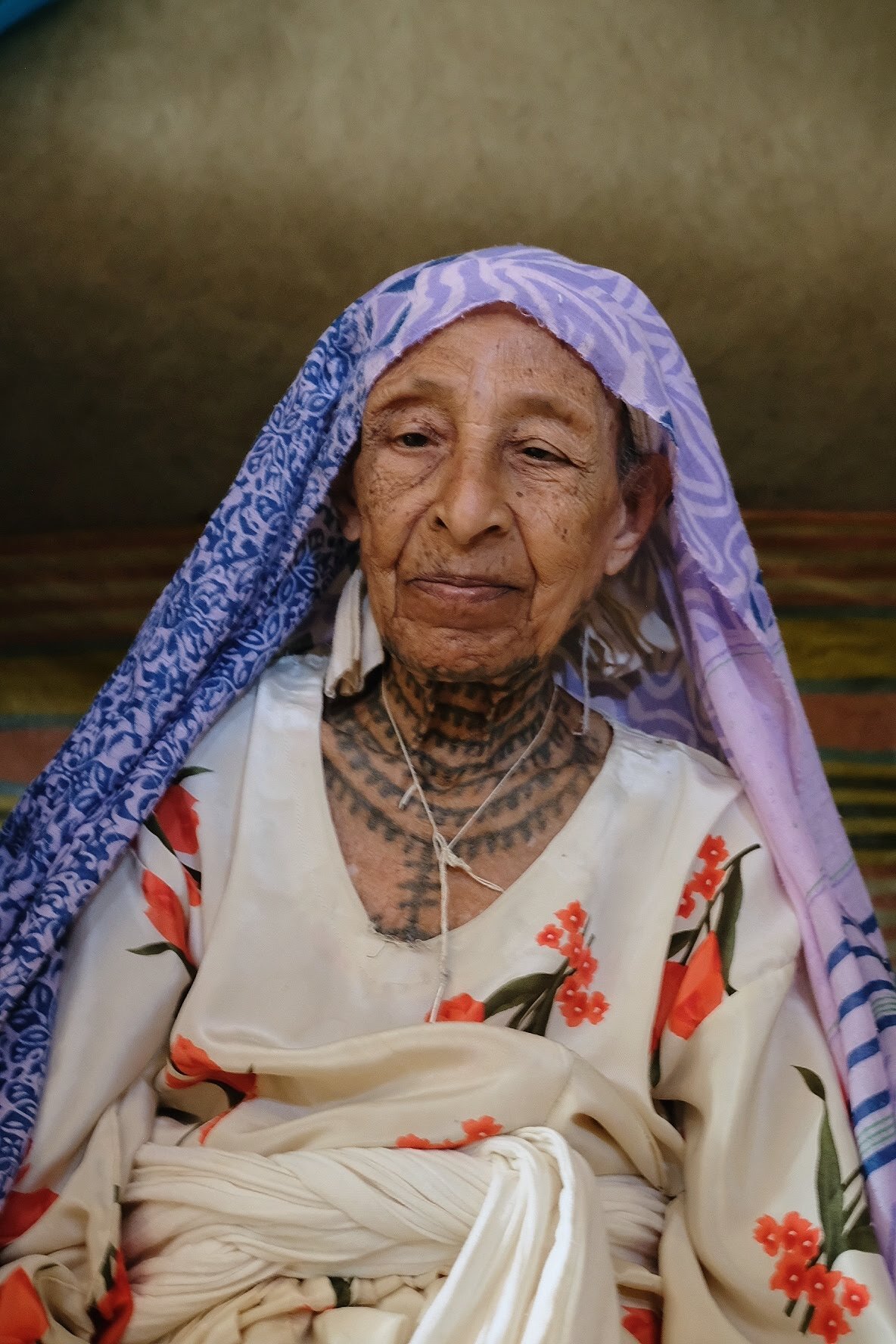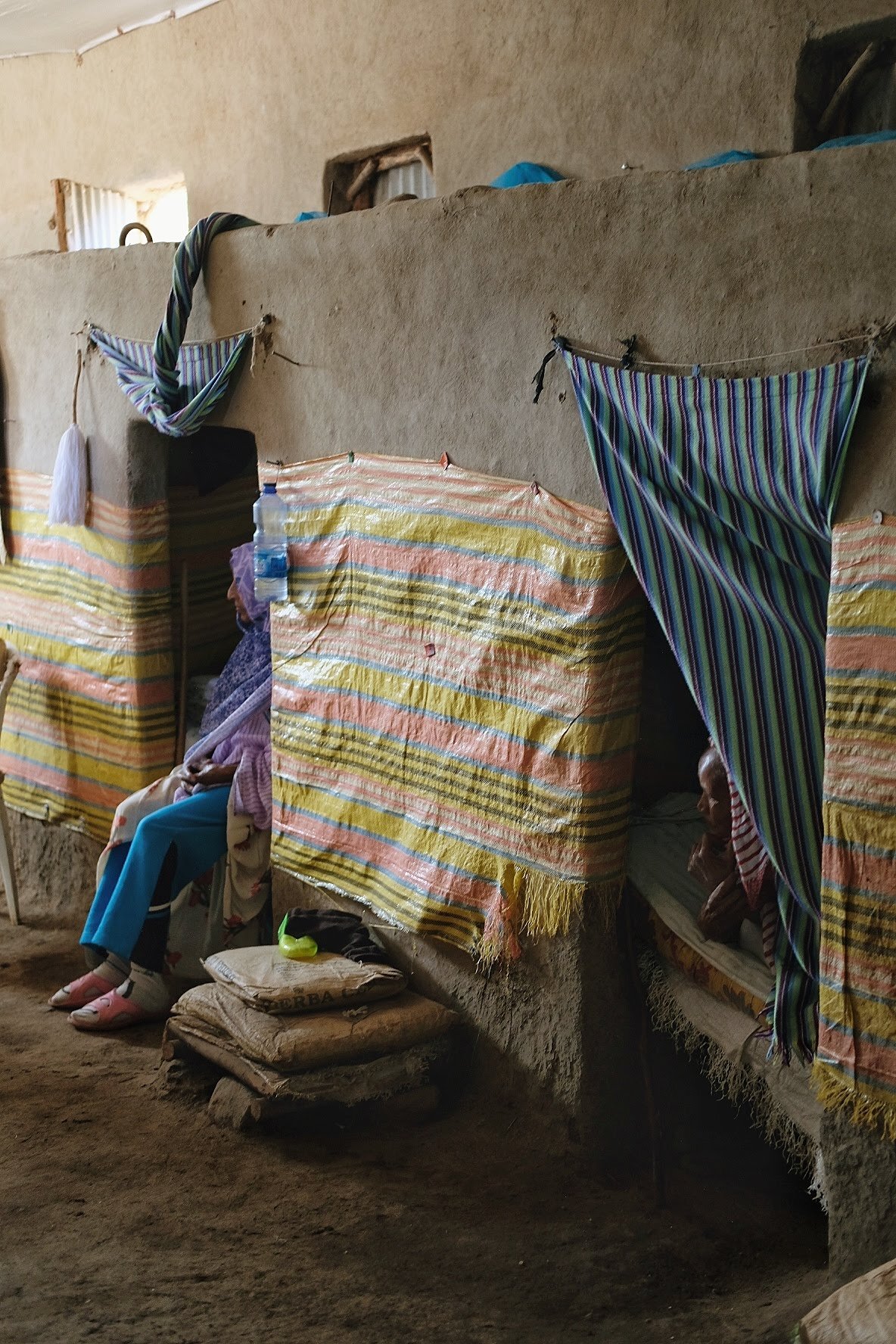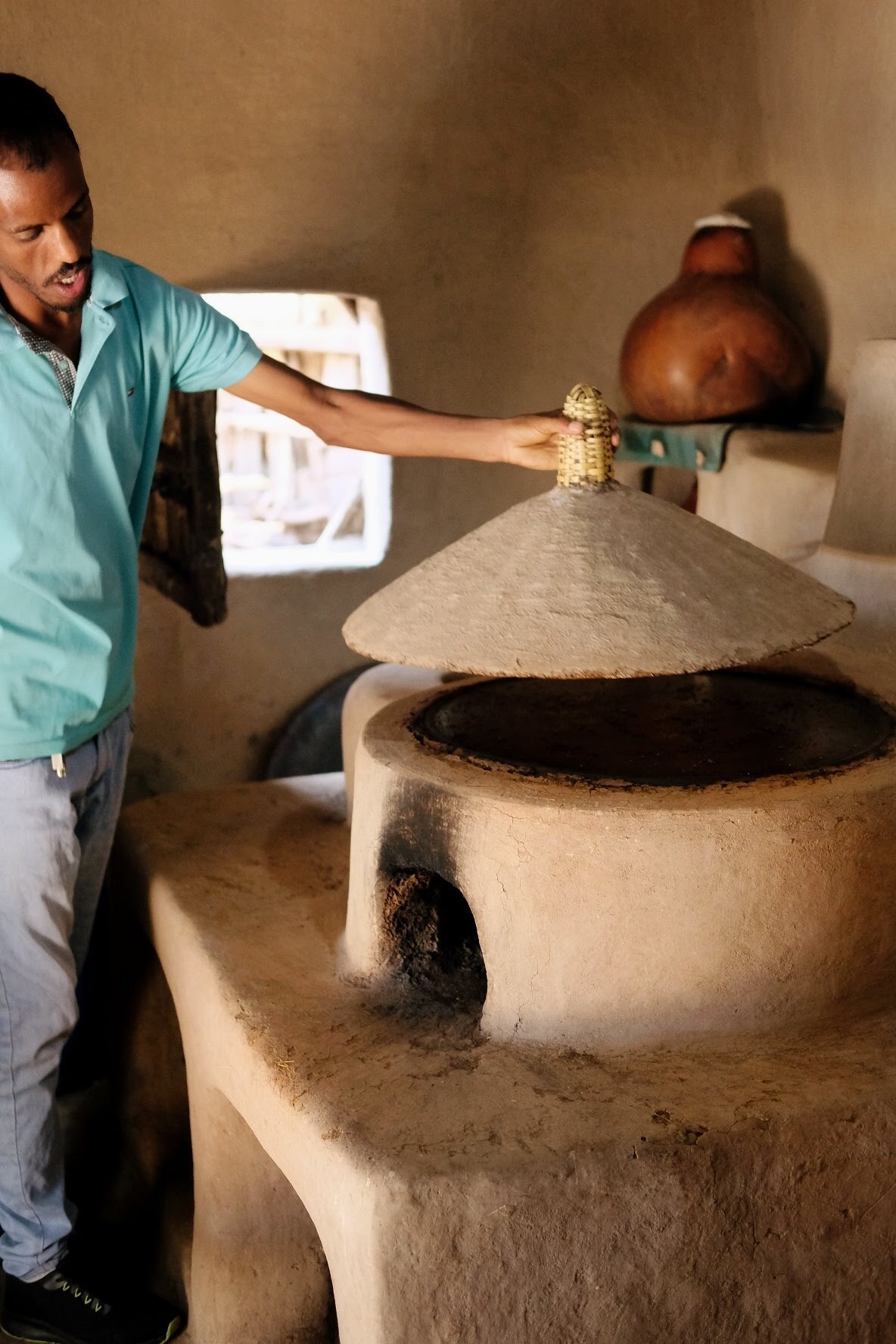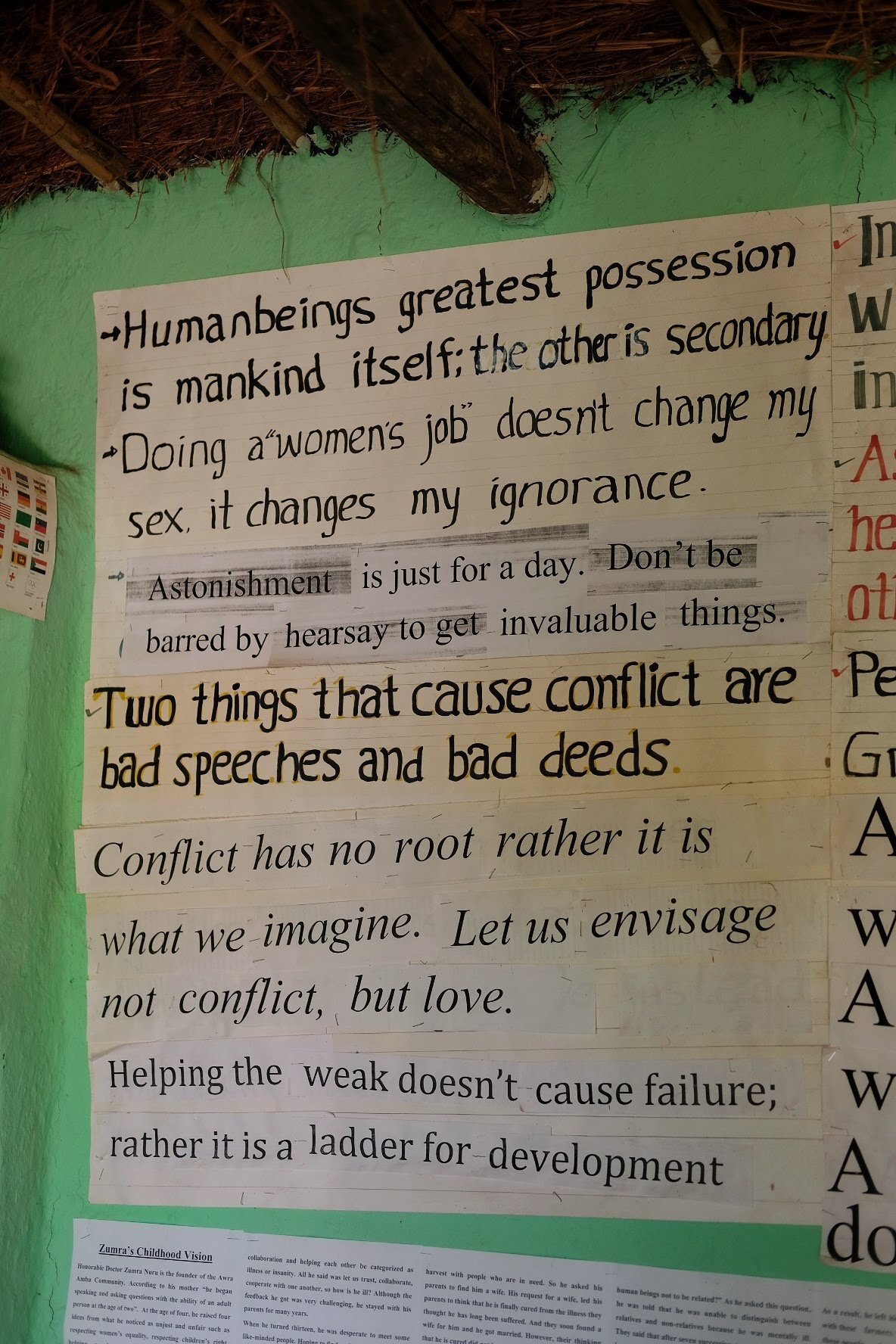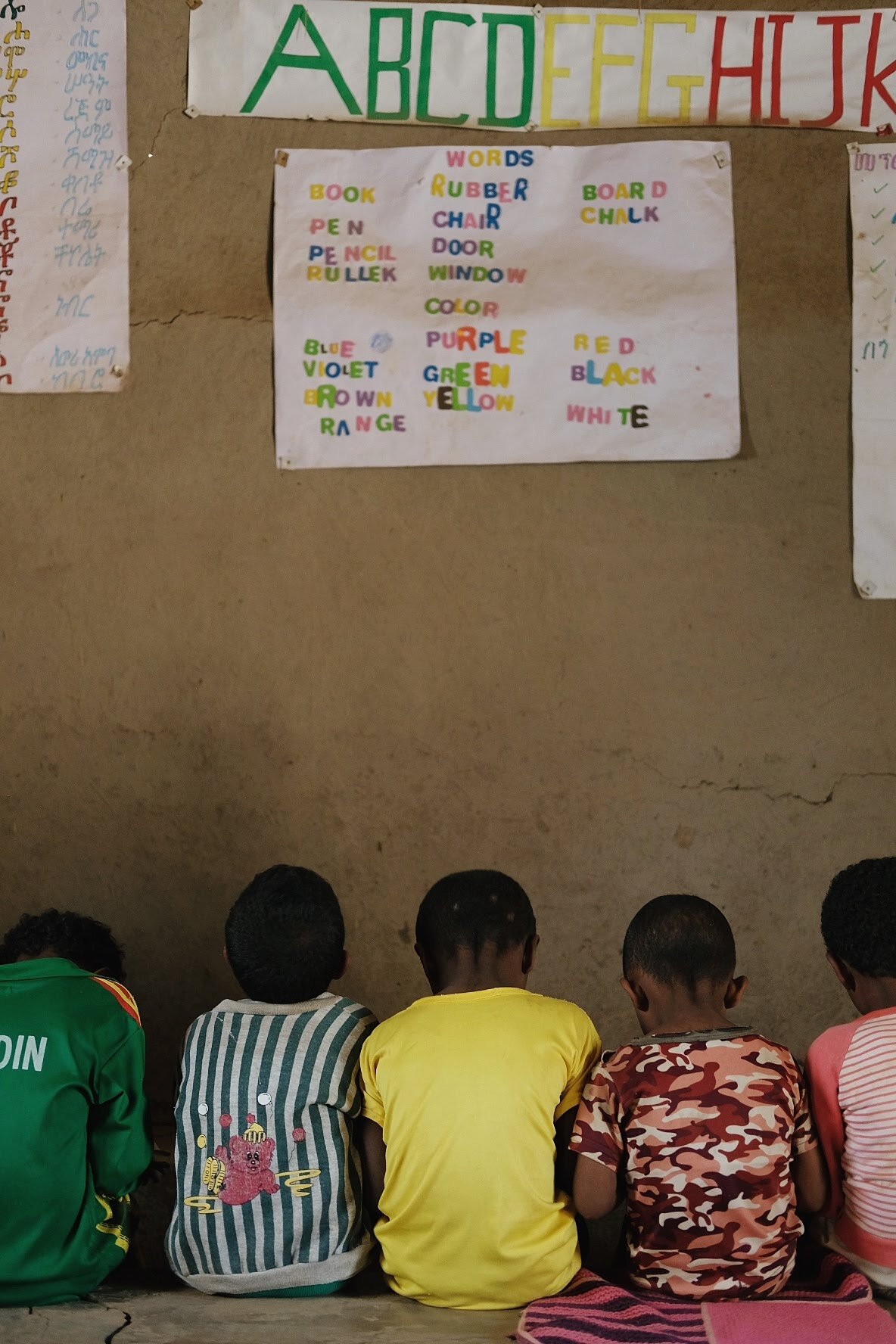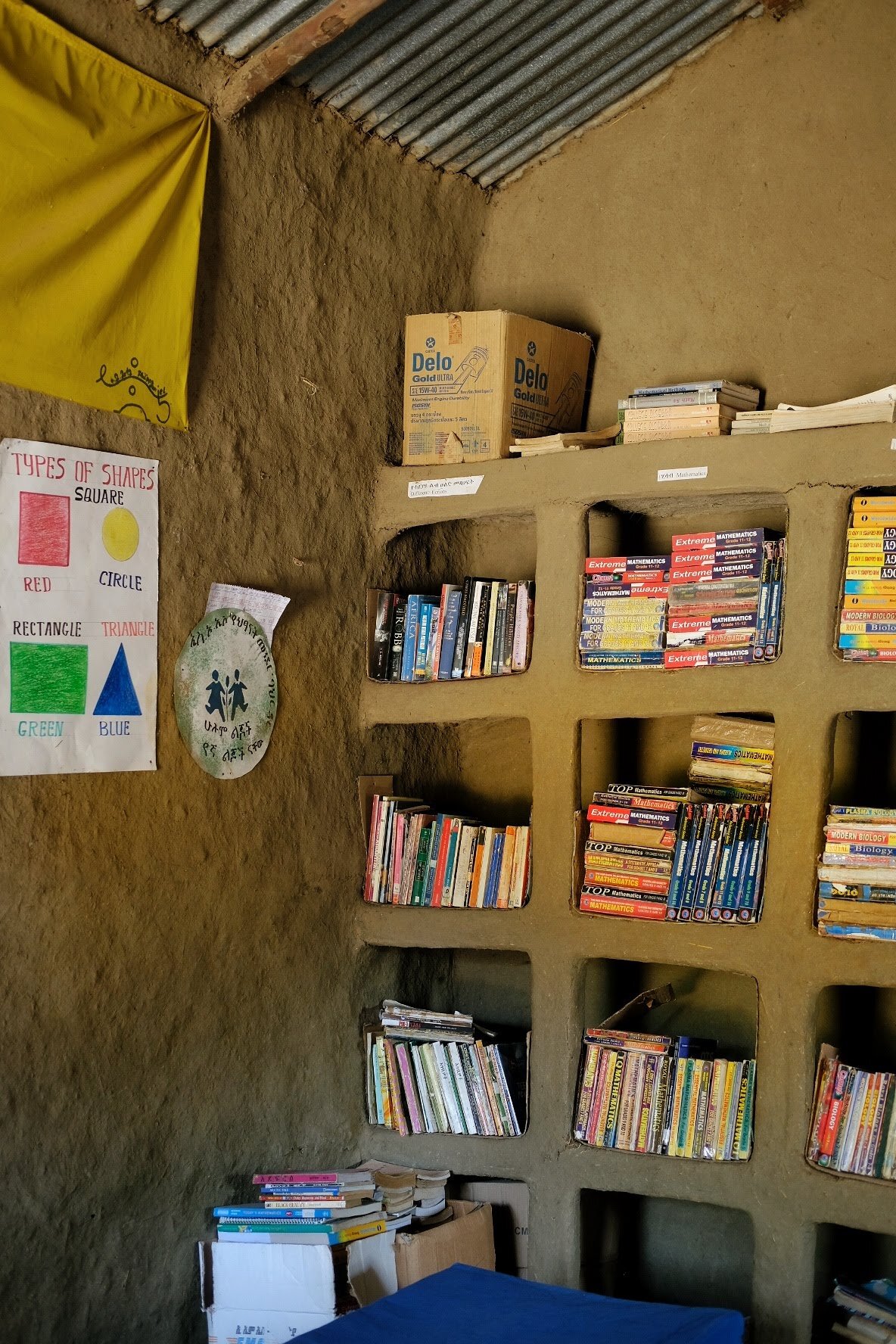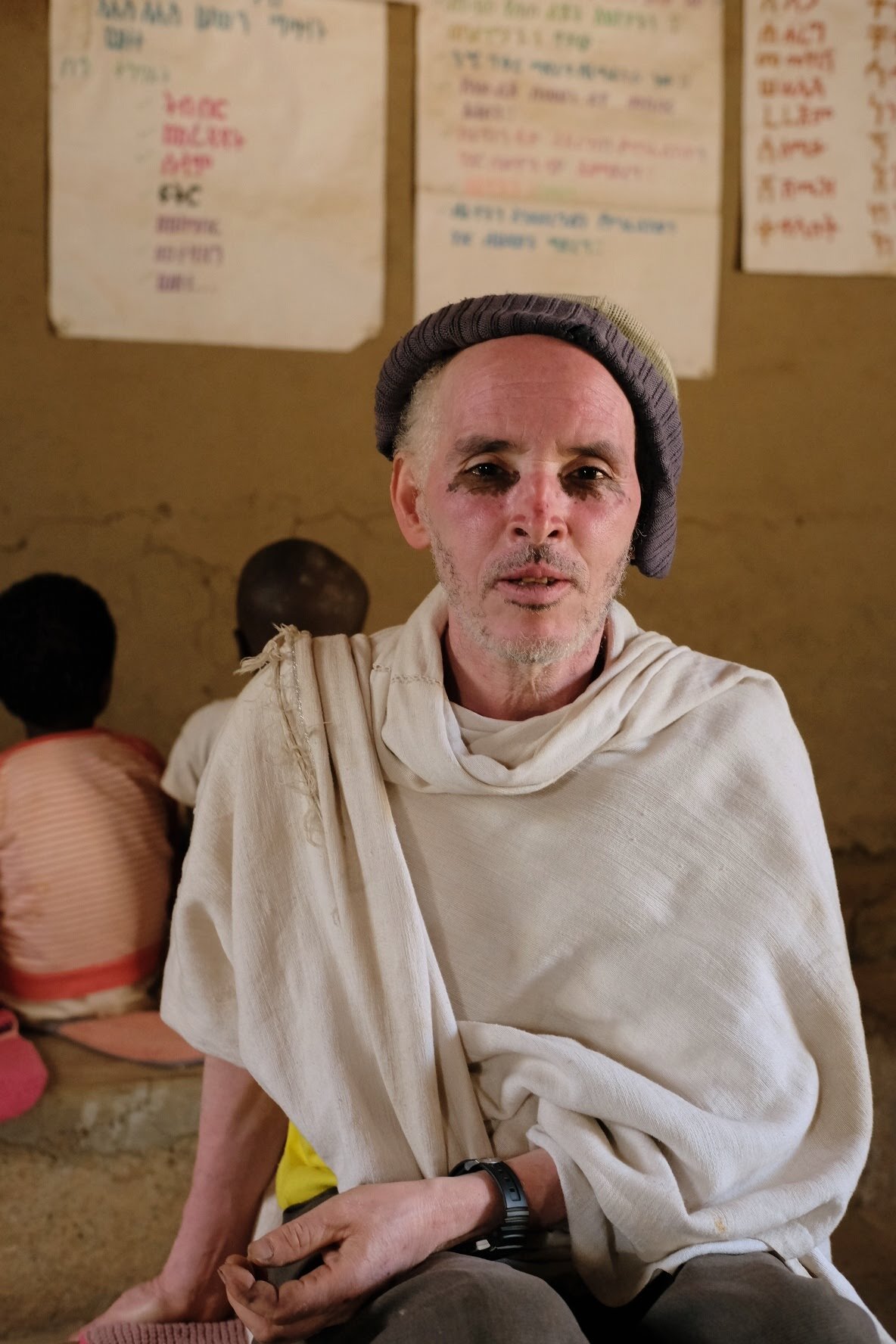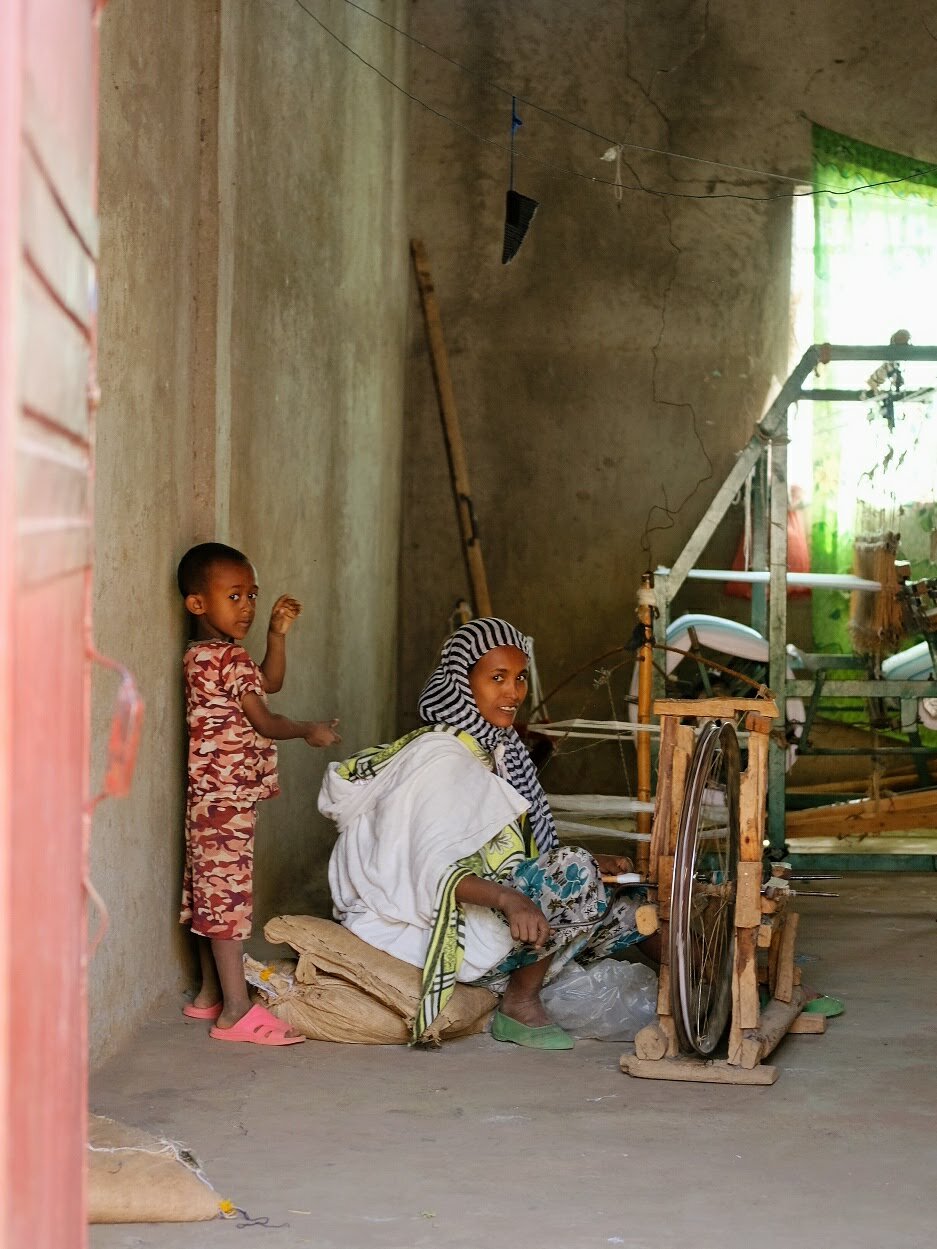Awra Amba - an egalitarian’s dream
Personal project
Awra Ambra is a small, intentional, 'feminist' living community in Northern Ethiopia. In this rural village of +- 500 people, they live by a philosophy of egalitarianism; not just in regards to gender but also in their socio-economic perspective.
The goal is a democratic, hard-working, self-sustaining and self-governing society where they:
• treat women and men as equals;
• work together to alleviate poverty;
• take care of the sick and the elderly;
• have freedom of religion - but no organized religion;
• consider education a top priority.
Sounds like a utopia that's too good to be true? Or more like a communist cult? I found it to be neither. And while they've dealt with a lot of local hostility, the village's way of life and stories of their successes have carried far and wide.
The Awra Amba community was founded in the 1970s by Zumra Nuru; a man whose green hat (inspired by trees) never seems to leave his head, and whom I get to talk to about his philosophy for the village.
Seeing his mom and other women being treated unfair ("like house slaves"), Zumra questioned conventional gender norms from a very young age. In a religious and traditional household and country, his ideas were usually met with resistance. He left home as a teen, looking for like-minded people, and it took years of traveling around before he found some farmers who could get behind his way of thinking.
The community at large does not adhere to either of the main religions of the country, Christianity and Islam. They are spiritual, live by the Golden Rule of 'treating others as you want to be treated' and you're free to practice whatever you believe. However, there are no houses of worship to be found in the village. "You can talk to your creator everywhere", Zumra said.
It's mostly that lack of organized religion and accusations of communism that made the growing Awra Amba community ostracized by their environment when they started out. It resulted in them being pushed out of their earlier settlement in the 80s and having to establish themselves on pretty barren and malaria-ridden lands.
Not able to solely live off agriculture, the community started to diversify their income. Over the years, they've established a successful weaving business, a niger seed oil factory, and there are three commercial grinding mills on their property. They opened a restaurant, some small shops, and a guesthouse. A health clinic, an elder care home, a library, and schools were also built.
Poverty and mortality rates went down, literacy rates and economic development went up - far exceeding Ethiopia's national averages - and the surrounding villagers slowly came/are coming around. Some of them now even send their kids to the Awra Ambra schools and visit daily to use the mills or buy something from the shops.
The local guide, Asnake, shows me around and takes me to my impeccably clean guestroom that's situated in the middle of the village. Asnake has grown up in the community, left for the city to get a degree, and then came back to reinvest in the village. Leaving for higher education or a better job is encouraged, and there are many like him.
In all of Awra Amba's different economic endeavors, as well as in the household, women and men work alongside each other. They divide the work equally to each person's ability and men will do traditional 'women's jobs' and other way around. By doing this, the village essentially doubled its workforce, contributing to its economic success.
The village is democratically run by different committees, voting together on all community rules and decisions. They organize bi-weekly community talks on how to work towards peace and equality and children are included in the democratic process.
Some other good stuff: there are no arranged or underage marriages, divorce is accepted for either party, there's access to contraceptives, and FGM is forbidden.
What I believe is essential for Awra Ambra's success isn't just the principles they live by and the hard work they put into it, but the freedom it provides. The freedom to uplift yourself out of poverty, to get healthcare if you need it, to receive an education. Freedom of religious doctrines and harmful traditional practices. Free to work in communal jobs and free to make your own money.
And most importantly; you're free to come, and you're free to go. The fact that many members choose to return as adults speaks for itself.

